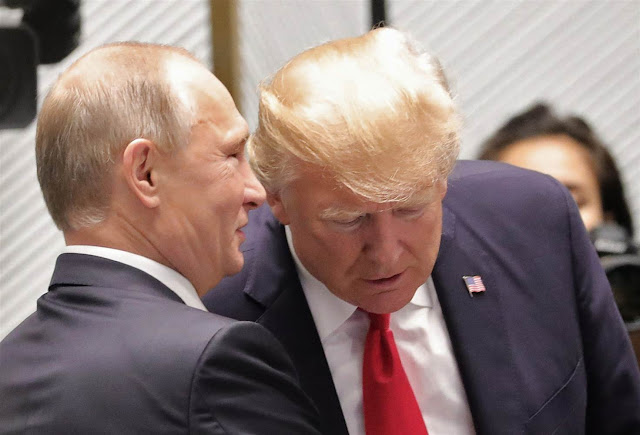I have written quite a few pieces about him already, but hopefully this will be my last. Donald Trump keeps intriguing. His rise to power surprised many, as does the continuing support of his base throughout his presidency, despite breaking every political rule in the book. It seems hard at times to make sense out of his often inconsistent, contradictory and chaotic behavior. However, I do not think he acts randomly or incoherently. There is one thread that weaves through much of his leadership – one that is so unpleasant we might not want to see it. It is no coincidence Trump enjoys the company of autocrats such as Vladimir Putin and Kim Jong-Un. One of the main things that characterizes Donald J. Trump as a leader is, I believe, authoritarianism.
 |
| Trump seems to have a knack for riling up people |
You may call him a bad leader, there is one thing Donald Trump is a master in: creating discord. After Barack Obama’s time in office, many on the left might have been lulled into thinking of the United States as a united nation. However, divisions along race, class and party lines run deep through American history and society, and eight years in office can never be enough to mend them. Trump brought them all back to the centre, more central than they had been in a long time.
You may think he did so out of incompetence, racism or plain old meanness, yet sowing discord is an essential characteristic of authoritarian leaders. Autocrats capitalize on people’s fear and anger. They create a sense of confusion, instability and turmoil, and then present themselves as the strongmen who will protect their people from the dangerous forces that are assailing them. So while they pose as those that will reinforce ‘law and order’, they are actually doing the exact opposite. Law and order is just a proverbial carrot they are holding out to people, the chaos they cause being the stick.
Authoritarian leaders know how to bring out the worst in people. They incite fear and rage – as Trump routinely does at his rallies. They will make people so afraid they will go to any length to ensure their safety. They know how to exploit the cracks in the system, and elicit people’s suppressed rage. To win his election for instance, he managed to tap into the despair of many working class people who felt left behind after Obama’s promises had failed to work out for them, and who saw no chance for a better future for themselves amidst continuing immigration and financial crises.
Autocrats survive on an ‘us vs. them’ mentality. They live in a very black and white world. There is no gray, no room for nuance. You are either with them or against them, as Trump has repeatedly shown in his contempt for the ‘fake news’. Autocrats do not want critical thinking, they want you to have blind faith in them, and accept whatever reality they hold out for you, however inconsistent or contradictory it might be. They are always in the right. Their self-aggrandizement amounts to narcissism, something I have discussed in my previous post. Some even call them malignant narcissists, combining narcissism with aggression, antisocial behavior and sadism.
 |
Donald Trump seems to get along well with leaders like Putin. This is no coincidence. |
In order to create this dichotomous mentality, autocrats play the nationalist card. They appeal to people’s identification with their country, which happens to be quite strong in the US. Authoritarians do not appear in a vaccuum, but emphasize (an extreme version of) certain national values, which they hold up as the only ‘real’ version. Trump will make America ‘great again’, promising to restore it to its original glory. He emphasizes typical American themes such as American exceptionalism, individualism and personal liberty (when it comes to carrying guns and ignoring lockdowns for instance).
All of this sounds quite gloomy, is there anything we can do about it? There is, in fact, but it has to be different from what media, politicians or angry protesters have done so far. Repeated attacks on Trump have not led to any change. They might well have had the opposite effect. As Martin Luther King once said: ‘Hatred cannot drive out hatred, only love can.’ As long as we continue to have heated debates, we reinforce the climate of rudeness and divisiveness Trump creates. We need to tell a different story, one of togetherness and connection. We need to reach out across party, class and racial lines, from an honest belief that we ‘are not as divided as our politics suggest,’ to quote Barack Obama. The good news is, we can all be part of this: we can embody this togetherness in our lives and find way to come together in peace, brotherhood and sisterhood, and overcome the divide. That will dramatically diminish his chances in the election, but even if he loses, the work will be far from over.
Comments
Post a Comment